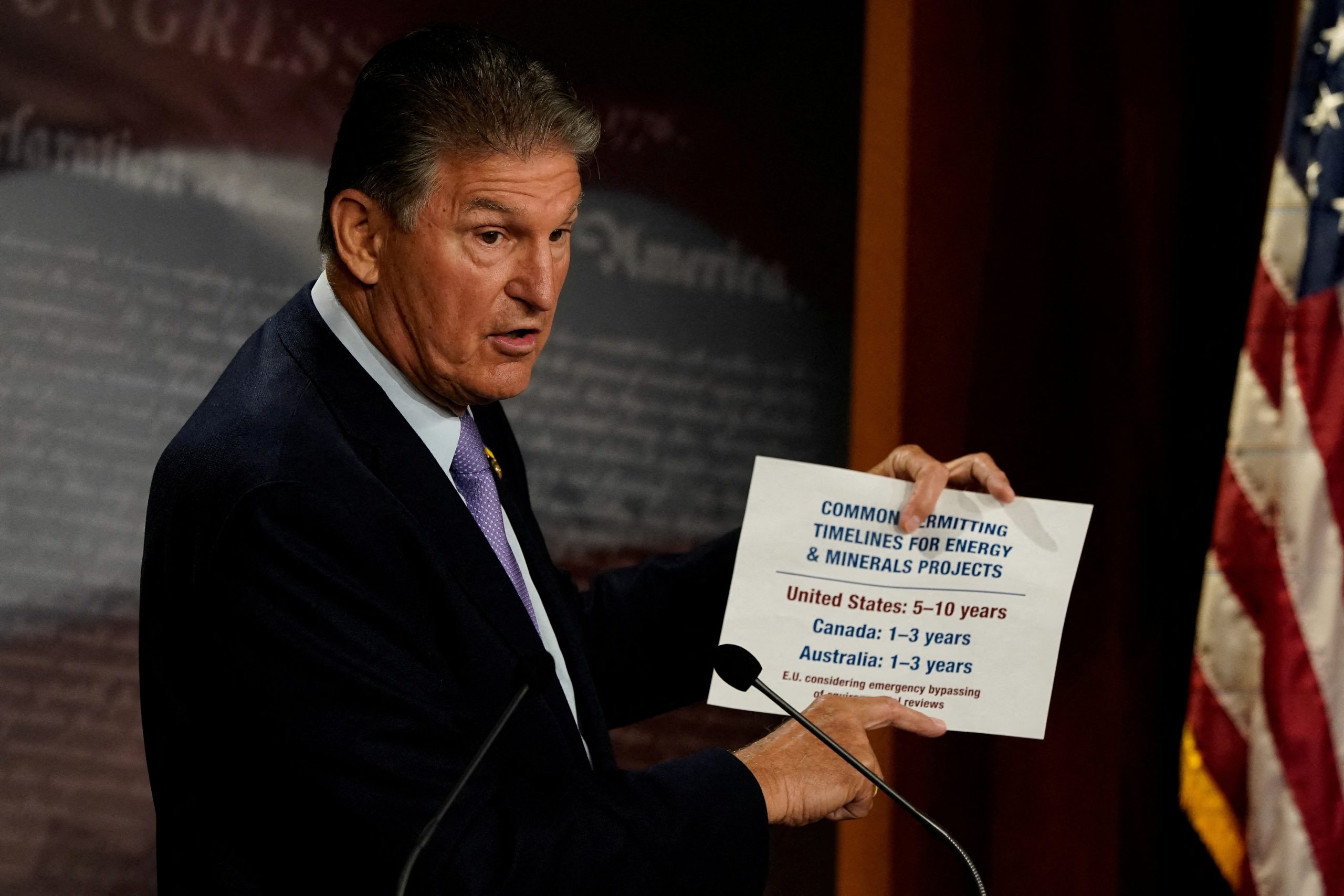
Willie R. Tubbs, FISM News
[elfsight_social_share_buttons id=”1″]
Moderate Democratic Sen. Joe Manchin of West Virginia has hemorrhaged support in his home state in the months since he signed onto the so-called Inflation Reduction Act, but the senator’s political fortunes are not necessarily lost.
Morning Consult, a business intelligence company that also tracks politics, has shared data that suggests Manchin’s popularity in West Virginia has sunk by double figures, down from 60 to 42% approval since his endorsement of President Joe Biden’s climate and tax collection bill.
By these numbers, Manchin is fast becoming one of the least popular senators in the chamber, having tracked as one of the most popular as recently as April.
Manchin’s disapproval ratings rank third worst among all senators in their home state. The only senators with worse standing are Senate Minority Leader Mitch McConnell (R-Ky.), who is the frequent target of criticism from within his own party, and Sen. Ron Johnson (R-Wis.).
“The latest surveys … show many West Virginians are reverting to the views they held of their senior senator before he spent the bulk of Biden’s early White House tenure tapping the brakes on a progressive agenda,” Morning Consult’s Eli Yokley wrote in his analysis.
Manchin has some things working in his favor, not the least of which being that he is not up for reelection until 2024, giving him time to rehabilitate and the ever-more-forgetful American public time to forget.
Manchin has a history of steering federal funds into West Virginia and getting concessions from Democrats on all manner of issues. Indeed, Manchin’s support of the inflation bill was predicated on Biden shoehorning Manchin’s oil permit measure into a government funding bill.
Manchin also has the benefit of an established track record of being a champion of traditional energy, which is a necessity for political survival in West Virginia, and of advocating for American energy independence.
West Virginia understands: The U.S. should not depend on foreign nations to power our country. Gas prices are on the rise, and now is the time to invest in domestic energy production to ensure America's access to affordable, reliable energy. https://t.co/vIqokVU9QC
— Senator Joe Manchin (@Sen_JoeManchin) October 17, 2022
“West Virginia understands: The U.S. should not depend on foreign nations to power our country,” Manchin tweeted Monday. “Gas prices are on the rise, and now is the time to invest in domestic energy production to ensure America’s access to affordable, reliable energy.”
When it comes to getting grant money for West Virginia, Manchin has continually maximized the power of his yes vote, which is required for any Biden or Democrat initiative to pass in a 50-50 Senate.
Few senators are as adept at capitalizing on every dollar garnered.
Since Thursday, Manchin has announced five different budget allocation wins, ranging from $14 million in power grants to $590 million in bridge and highway repair grants, the latter being money drawn from the bipartisan infrastructure bill Manchin guided through Congress by steadfastly resisting much of Biden’s social spending goals.
These multimillion-dollar influxes are not to be discounted. For better or worse, federal grant money is a powerful motivator for voter bases. Given time and ever-more money being funneled in, perhaps Manchin’s inflation stumble will be forgotten.
The problem for Manchin, though, is that his ability to make political hay by going against his own party might wane in the coming two years. Should Republicans regain control of the House and/or Senate, Manchin’s days as the gatekeeper of all legislation would end. His power can only be sustained at its current level with a Democrat-run House and a 50-50 Senate.
If Republicans are able to pass or kill any bill in one or both chambers, Manchin’s role in the legislative process will be severely diminished.
